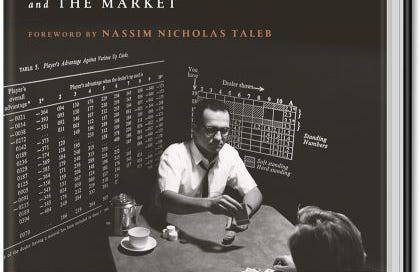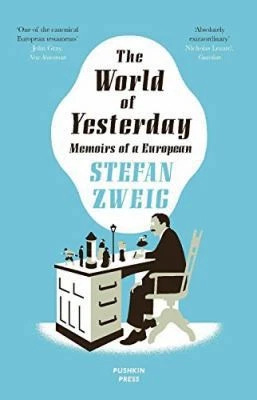Nico's Bookshelf: A Variety of Essential Reads
Unsolicited Book Recs You Didn't Ask for, But Will Thank Me Later
Welcome to Nico’s Book List — My First Behind-the-Paywall Post
I needed a home for my literary infatuations—infatuation is the wrong word since this is the definitive list. Still, the fleeting nature before the next book makes it appropriate. You get the idea.
It will evolve. I'll break it into themes once it becomes more than a half-formed electronic bookshelf. Maybe by subject. Possibly by Importance.
It’s behind a paywall because curiosity is worth something, and I don’t have many other hobbies. This is the final cut of a lifetime of reading. Suggestions, debates, and “how could you miss this one?” are more than welcome.
Recommend your favorite books. Let’s build this together.
The World of Yesterday: Memoirs of a European
-Stefan Zweig
Nick’s Notes:
Stefan lived through one of the most volatile and technologically inspiring periods of history. Yet, the horrors man wrought on fellow man with his “innovations” left deep scars, which presumably led to his suicide during WWII.
Two timeless events stand out, and I can draw parallels to the current period.
On the last train out of Belgium before the Germans rolled in. It had been over 50 years since the Franco-Prussian War—the public had forgotten what war truly was. Everyone, including the avowed pacifist Stefan himself, was swept up in the patriotic fervor. World War I arrived with promises of modern marvels—only to reveal themselves as instruments in a vast, industrial-scale human meatgrinder.
There was no mistaken notion of glory or grand triumph preceding the Second World War. The masses knew what was coming would be horrible and grotesque—the butchering of humans on a far more efficient scale.
The early ascent of Adolf Hitler remains one of history’s most terrifying lessons in willful denial—both locally and internationally. At every critical moment, opportunities to confront his rise were missed, dismissed, or explained away.
In the early days of his power grab, Hitler cast a wide net of promises—frequently contradictory—offering hope to monarchists yearning for a return of the Kaiser, and to leftist workers desperate for relevance after the economic disaster of the 1920s. Once power was secured, he swiftly dismantled every faction that had helped him climb.
Goering’s propaganda machine began with a whisper rather than a roar, weaponizing university students to ignite cultural purges—boycotting authors and burning books. Stefan Zweig, who had never penned a political word in Germany, was among the first silenced, his only crime being his Jewish identity and literary influence.
When Chamberlain returned from negotiations with Hitler, he was welcomed as a man who had preserved peace. The British clung to hope, ignoring the absurdity of placing trust in Hitler’s word.
The Germans, meanwhile, celebrated another strategic victory — without firing a shot. That moment, viewed in hindsight, stands as one of modern history’s most chilling misjudgments.
Keep reading with a 7-day free trial
Subscribe to Nico AiQ to keep reading this post and get 7 days of free access to the full post archives.



